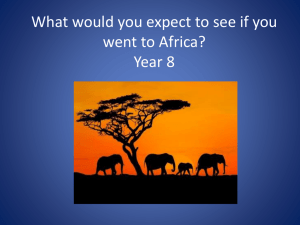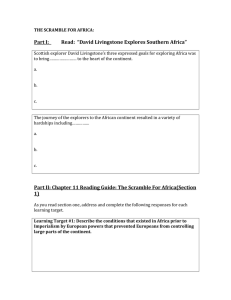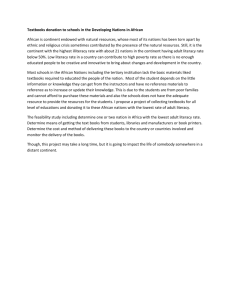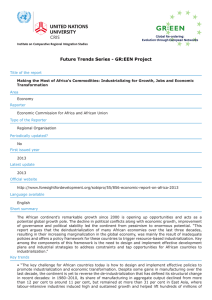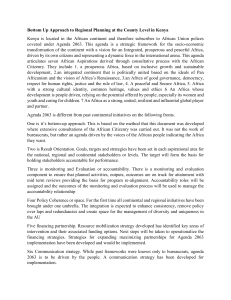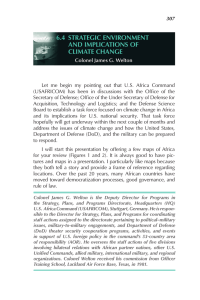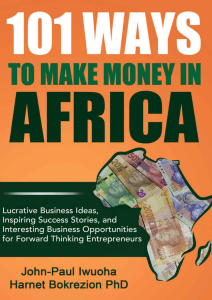Independence in Africa!
advertisement
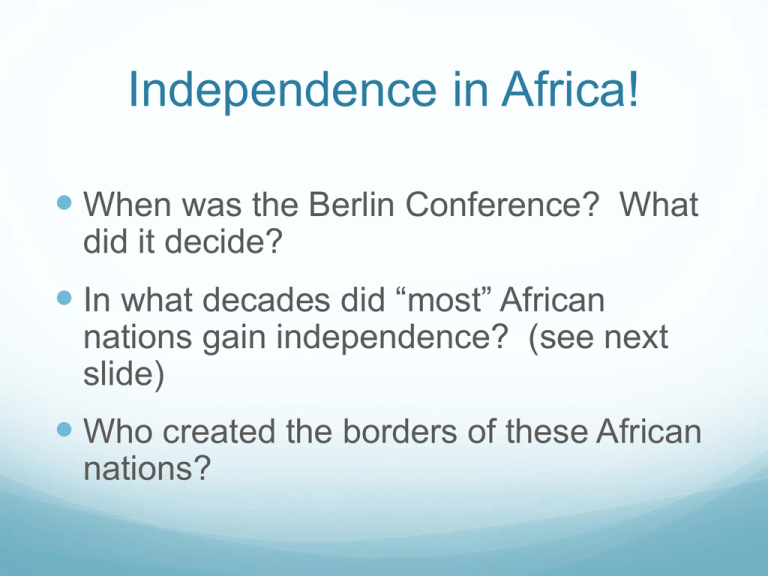
Independence in Africa! When was the Berlin Conference? What did it decide? In what decades did “most” African nations gain independence? (see next slide) Who created the borders of these African nations? and poverty of some African countries Africa after independence Africa is by far the world's poorest continent. Though parts of the continent have made significant gains over the last few years. Out of the 175 countries, 25 African nations ranked lowest amongst the nations of the world. GDP by country; north & south wealthiest The northern and southern ends of the continent are wealthiest North Africa has long been closely linked to the economies of Europe and M.E. South Africa is by far the continent's wealthiest state in total GDP. The small but oil-rich states of Gabon and Equatorial Guinea round out the list of the ten wealthiest states in Africa. Turbulent history = poverty & lack of modernization! Corruption Civil Wars The Cold War = violence in Africa Ghana- 14 coups in 14 years! Joseph Mobutu Ruled over the Republic of the Congo from from 1965 to 1997. He formed an authoritarian regime, amassed vast personal wealth Mobutu consolidated power by publicly executing political rivals, coup plotters, and other threats to his rule. Reasons for severe poverty Civil Wars = destruction of land and economy Droughts lead to famine Inadequate transportation and storage of food Fuel is primarily wood- becomes more scarce every year African nations in debt Corruption and theft of leaders Low level of industry; mostly case crops Foreigners own mining, diamond & other companies Kenya Have things improved or changed in Africa? A democratic reawakening in the 1990s! In 1989 there were 35 African nations with oneparty rule; by 1994 there are none. Education has increased and growth of universities Some improvement in technology and infrastructure Health care has improved Accra, Ghana Nairobi, Kenya Democratic Republic Congo- Kinshaha Cape Town, South Africa Johannesburg


